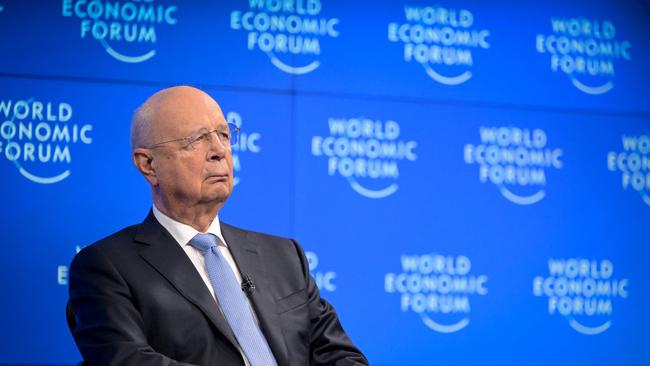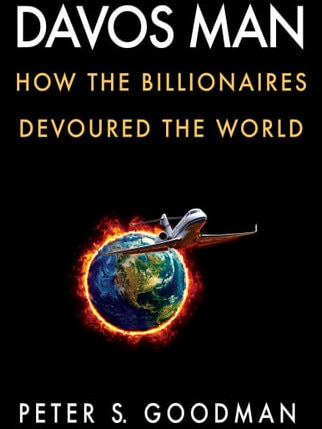Seeing predatory evil in do-gooder Davos Man

The idea caught on. Fifty years later, about 3000 billionaires and millionaires, heads of state, rock stars, and hangers-on flock to the annual gathering. (The 2021 forum was held remotely, and this year’s meeting has been delayed.) The language of stakeholder capitalism permeates politics and economics. Schwab did more than build an institution. He created a social type: the globetrotting, well-connected, extremely wealthy do-gooder whom the late political scientist Samuel Huntington called “Davos Man”.
New York Times economics correspondent Peter Goodman has spent years chronicling Davos Man. He’s not impressed. He’s written a lengthy diatribe against global capitalism and its biggest winners that explains why. In Goodman’s telling, Davos Man is a “predator” who belongs to a “gluttonous cabal”. Davos Man is responsible for just about everything that has gone wrong with the world since Schwab first uttered the word “stakeholder” in German. The Italian deficit, rent increases in Sweden, and deaths from Covid-19 are all Davos Man’s fault. “Widening economic inequality, intensifying public anger, and threats to democratic governance,” Goodman writes, “have all resulted from the depredation of Davos Man.” Dishwasher broken? Davos Man is behind it.
Goodman’s tone is fevered, his descriptions lurid. Davos Man feasts, seizes, plunders, ransacks, loots, pillages. He works with “collaborators” to achieve his nefarious ends. He is a shapeshifting bogeyman whose appetites are insatiable and whose human sympathies are non-existent. He’d be terrifying if he existed.
The book does score a few points against its targets – sorry, subjects. Jeff Bezos’s Amazon has labour troubles. Stephen Schwarzman of Blackstone throws ostentatious parties. Marc Benioff of Salesforce committed a gaffe last year when he called CEOs the “heroes” of the pandemic. Larry Fink’s BlackRock played hardball to recoup its losses on Argentine debt. They all proclaim their public-spiritedness while pursuing their self-interest. No one will deny that Davos Man can be annoyingly self-righteous. But Goodman’s critique is so relentless and one-sided that the reader can’t help feeling a touch of sympathy for these Masters of the Universe.
Goodman is a skilled reporter whose stories of private affluence and public squalor are filled with detail and human interest. But his conclusions are muddle-headed. He elides the distinction between tax evasion and tax avoidance.
He writes that “the cardinal principle at the heart of globalisation as engineered by Davos Man” is shareholder primacy, despite lengthy discussions of Davos Man’s commitment to stakeholder capitalism. In the space of a few lines, he goes from calling the massive pandemic relief bill of 2020 “a prime example of moneyed interests exploiting a catastrophe for elaborate gain at public expense”, to admitting it “would ultimately prove highly effective, supplying the wherewithal for families to stave off eviction, bankruptcy, and other calamities”.
The confusion persists when Goodman discusses the welfare state. He holds up the social democracies of northern and western Europe as examples of enlightened wealth redistribution. But his descriptions of Italy, France and Sweden undermine his argument for a union-dominated, high-tax economy. He concedes that Italian labour law contributes to economic sclerosis. “Firing workers in France,” he writes, “was costly and time-consuming, involving lengthy severance and legal processes.” He acknowledges that Sweden repealed its wealth taxes because they were difficult to enforce. He touts high marginal tax rates but includes just one offhand mention of the regressive value-added taxes that supply most of the revenue for European entitlements.

The book is a master’s course in selective indignation. In this telling, public-sector failure doesn’t exist. Every ill is the fault of the private sector. Debtors have no agency, creditors do. Davos Man can’t catch a break: according to Goodman, Amazon’s wage hike last year didn’t really count as a raise because it was done “more as a way to harm competitors than to redress unfair treatment”. One prominent Davos Man, liberal hedge fund billionaire George Soros, appears only briefly in the narrative. Goodman identifies him as “the financial trader and democracy advocate”. Then there is Mexican billionaire Carlos Slim. Government connections made him one of the world’s wealthiest men. At one point, he was the single-largest individual shareholder in Goodman’s paper. He doesn’t appear at all.
By the time Goodman writes that Italy experienced a high rate of death at the outset of the pandemic because a regional government “had given short shrift to basic preventive care”, you’re ready to give up. No amount of preventive care will stop a novel coronavirus in the absence of vaccines and therapeutics.
Goodman’s proposed solutions to inequality – local co-operatives, mass unionisation, universal basic income, hipster antitrust, and high taxes on incomes, inheritances and wealth – will be familiar to anyone familiar with the left side of politics. His medicine for the global economy is exactly the sort of fashionable policy-talk one might hear at the World Economic Forum.
Davos Man: How the Billionaires Devoured the World Peter Goodman HarperCollins, 480pp, $29.
Matthew Continetti is a senior fellow at the American Enterprise Institute.
The Wall Street Journal



In 1971 a German economist named Klaus Schwab convened the first meeting of what would become the World Economic Forum in Davos, Switzerland. Schwab wanted business executives, government officials and non-profit leaders to discuss his idea of “stakeholder capitalism”: the concept that corporate managers have a duty to pursue the interests not only of shareholders, but of stakeholders. What’s a stakeholder? Basically, it’s any individual or group allegedly affected by the company’s decisions.